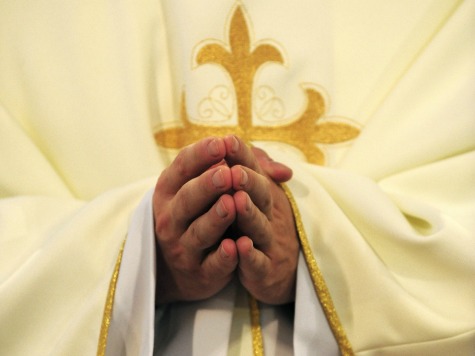The Christian faith is being pushed out of public life, former attorney general Rt Hon Dominic Grieve has said, adding “Clearly it happens at a level of local power… In my view it’s very undesirable.”
In an interview with The Telegraph, Mr Grieve highlighted as “quite extraordinary” some high profile cases in which employees had been sacked for wearing crosses or expressing their beliefs. He conveyed a strong belief that it was “more important than ever” that politicians speak up about their religious beliefs at a time in which Christians abroad were suffering persecution.
Religion is generally excluded from political discourse in the UK, where politicians rarely talk about the role that their beliefs have within their decision making processes. This is despite an increase in the number of religious people entering public life over the last few decades.
Former Prime Minister Tony Blair, who converted to Catholicism after retiring, was barred by his director of communications Alisdair Campbell from talking about his religion. Mr Campbell once famously prevented him from answering a question on the subject by interjecting “We don’t do God”.
The current Prime Minister David Cameron, an Anglican, has previously said that his faith was a bit like “Magic FM in the Chilterns”, meaning that it drifts in and out, although earlier this year he was more forthright suggesting that Britain should be more “evangelical” in pronouncing its Christian faith. His comments provoked a storm of outrage from athiest groups and liberal commentators.
Mr Grieve agreed, saying “I think politicians should express their faith. I have never adhered to the Blair view that we don’t do God, indeed I’m not sure that Blair does. I think that people with faith have an entitlement to explain where that places them in approaching problems.
“I think that those of us who are politicians and Christians should be in the business of doing it.
“It doesn’t mean that we have the monopoly of wisdom, but I do think Christianity has played an enormous role in shaping this country.
“It’s a very powerful force in this country [but] I think it’s underrated, and partly because in the past it has failed to express itself as clearly as it might.
“Recognising people’s right to manifest their faith and express it is very important.”
Two years ago this government amended the law to ensure that local councils could not face legal action for setting aside a short time in which to pray at the beginning of council meetings, following High Court backing for a controversial campaign to support such actions.
Some of Mr Grieve’s colleagues have been more reticent to give voice to their Christianity. Speaking to The Telegraph last year, Welfare Secretary Iain Duncan-Smith, also a Catholic said “I am not very good about talking about religion, because I take a peculiar British view of this which is that I keep it very personal to myself all the time.”
There has been growing feeling amongst Britains Christians that they are being increasingly discriminated against. Last June Christian Today reported that Britain’s most senior female judge admitted that the law may discriminate against Christians, citing a high-profile case that she herself had ruled on.
Hotel owners Peter and Hazelmary Bull were ordered by Judge Baroness Hale to pay £3,600 in damages to a gay couple who wanted to rent a double room for the night. The Bulls refused on the grounds that they only let double rooms to married couples of any sexuality, and offered the couple two single rooms instead.
At the time Baroness Hale said that we should be “slow to accept” the rights of Christians to conform to their beliefs when dealing with gay people in a business transaction. However, delivering a lecture at Yale this year, the Baroness said: “It is fascinating that a country with an established church can be less respectful of religious feelings than one without”.
“It is not difficult to see why the Christians feel that their religious beliefs are not being sufficiently respected,” she added, calling upon the British courts to show more tolerance for Christian views.

COMMENTS
Please let us know if you're having issues with commenting.